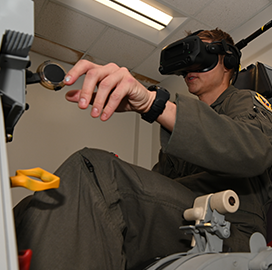
Mixed reality
DARPA Seeks Proposals for Intrinsic Cognitive Security Program
The Defense Advanced Research Projects Agency is soliciting proposals to perform a study on potential cognitive attacks on mixed reality devices and develop prototypes of MR systems using mathematical approaches, known as formal methods, designed to secure the equipment from such attacks.
Work, split into two phases, will be performed under DARPA’s Intrinsic Cognitive Security program aimed at securing the use of MR technology to enable its adoption in the Department of Defense organizations in the future.
Proposals for the 36-month ICS program will be accepted until Nov. 2, DARPA said.
Phase 1 work involves exploring and validating mathematical approaches that could ensure the security of MR devices and formulate system models to provide proven guarantees. Under the second phase, participants will build prototypes based on existing MR hardware and software to demonstrate how guarantees can reduce cognitive attack risks.
Matthew Wilding, DARPA’s ICS program manager, said the development of formal methods aims to ensure MR system users are protected before the device becomes a commonly used technology.
According to the agency, malicious actors can flood the device with information to induce motion sickness, distract personnel and provide false alarms.

Category: Defense and Intelligence




